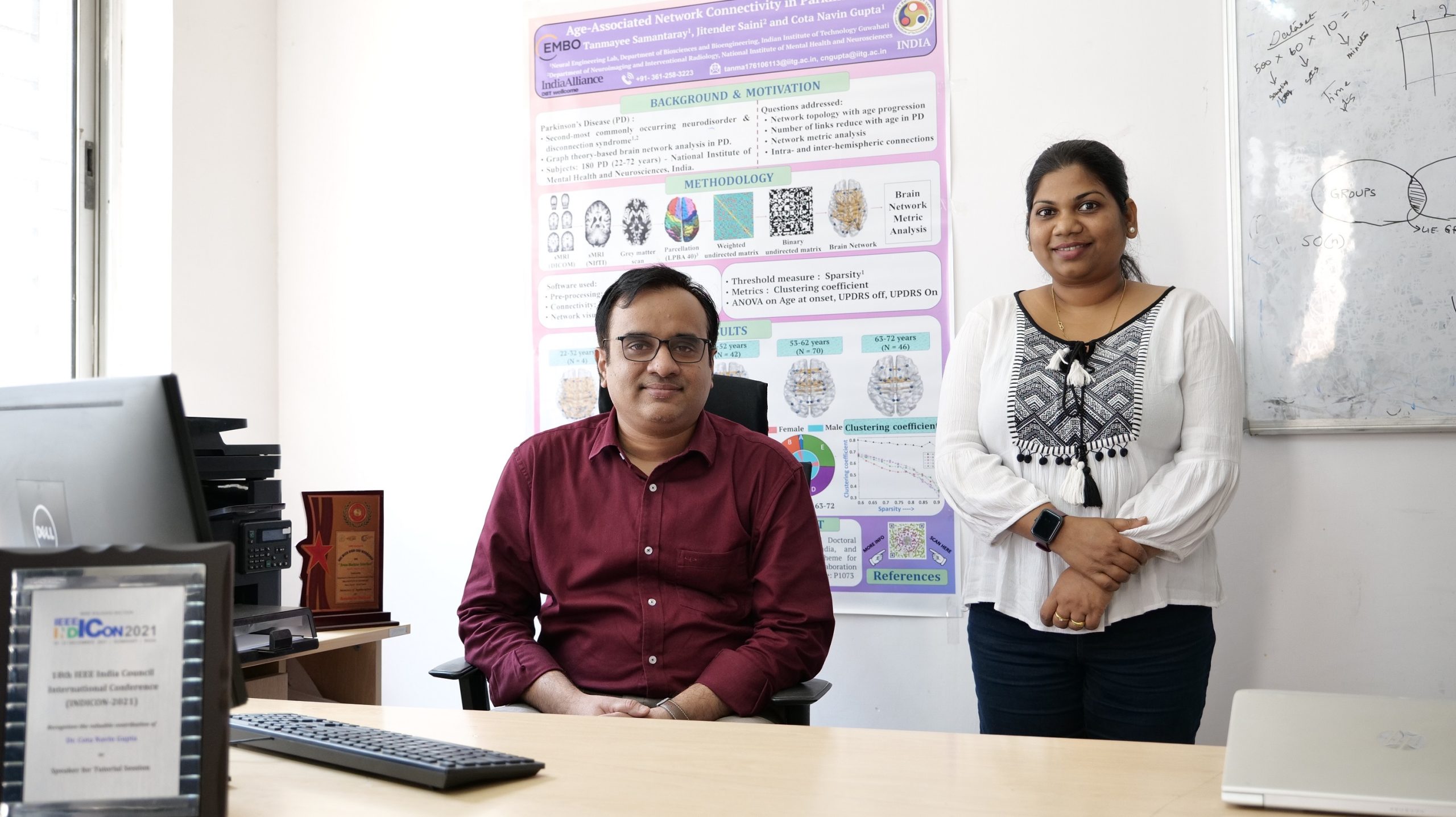
|
Getting your Trinity Audio player ready...
|
In a remarkable leap forward in the field of neuroscience, researchers at the Indian Institute of Technology, Guwahati (IIT Guwahati) have introduced a groundbreaking algorithm known as the Unique Brain Network Identification Number (UBNIN). This innovative algorithm is poised to revolutionise the analysis of brain connectivity patterns, offering profound insights into both healthy brain function and neurological disorders such as Parkinson’s disease (PD).

The human brain, with its intricate network of neural connections, is a marvel of complexity. Each individual possesses a unique pattern of brain connectivity, akin to a fingerprint of the mind. Recognising the significance of these individualised brain networks, the researchers at IIT Guwahati set out to develop a method capable of decoding and quantifying these intricate patterns.
The UBNIN algorithm represents a paradigm shift in how we understand and analyse brain connectivity. Drawing upon data from structural MRI scans, the algorithm constructs a network model of the brain, with each region of the brain represented as a node. These nodes are interconnected by edges, reflecting the strength of connectivity between different brain regions.
What sets UBNIN apart is its ability to distil this complex network into a single numerical identifier. This unique identifier, akin to a digital signature for the brain, encapsulates the individualised connectivity patterns of each person. By quantifying these patterns into numerical values, UBNIN offers a powerful tool for understanding the structural organisation of the brain.
The implications of UBNIN are far-reaching. One potential application lies in the realm of brainprinting, where individual brain signatures could be used for identification purposes. Much like a fingerprint uniquely identifies an individual, UBNIN could serve as a digital identifier for the brain, with applications in personalised medicine, biometrics, and cognitive neuroscience.
Moreover, UBNIN holds promise as a biomarker for neurological disorders such as Parkinson’s disease. Parkinson’s is a progressive neurodegenerative disorder characterised by the loss of dopaminergic neurons in the brain. Early detection of Parkinson’s is crucial for initiating timely interventions and improving patient outcomes. By analysing changes in UBNIN values over time, researchers may be able to identify subtle alterations in brain connectivity associated with the onset and progression of Parkinson’s disease.
To validate the utility of UBNIN as a biomarker for Parkinson’s disease, researchers conducted a comprehensive study involving structural MRI scans from both PD patients and healthy individuals. The results were promising, with UBNIN values exhibiting distinct patterns in PD patients compared to healthy controls. This suggests that UBNIN has the potential to serve as a sensitive and specific biomarker for Parkinson’s disease, offering new avenues for early diagnosis and disease monitoring.
Furthermore, the researchers explored the impact of age on brain connectivity patterns. Aging is associated with changes in brain structure and function, which may contribute to the development of neurological disorders. By analysing structural MRI data from individuals across different age groups, the researchers found that brain connectivity patterns indeed change with age. Specifically, they observed a decrease in the clustering coefficient—a measure of network connectivity—with increasing age. These findings provide valuable insights into the dynamic nature of brain plasticity and aging.
Dr. Cota Navin Gupta, Assistant Professor at the Neural Engineering Lab, Department of Biosciences and Bioengineering, IIT Guwahati, commented on the significance of these findings. “UBNIN offers a unique window into the structural organisation of the brain,” he remarked. “By quantifying individualised brain connectivity patterns, UBNIN has the potential to transform our understanding of brain function and dysfunction.”
Looking ahead, the researchers envision further applications of UBNIN in diverse fields, ranging from personalised medicine to cognitive neuroscience. By harnessing the power of UBNIN, researchers may unlock the mysteries of the human brain, paving the way for new insights into neurological disorders and brain health.
















